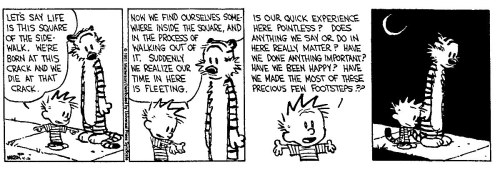All authority of any kind, especially in the field of thought and understanding, is the most destructive, evil thing. Leaders destroy the followers and followers destroy the leaders. You have to be your own teacher and your own disciple. You have to question everything that man has accepted as valuable, as necessary.
Having realized that we can depend on no outside authority … there is the immensely greater difficulty of rejecting our own inward authority, the authority of our own particular little experiences and accumulated opinions, knowledge, ideas and ideals.
From: http://en.wikipedia.org/wiki/Jiddu_Krishnamurti
I was completely unaware that such a thorough biography of Krishnamurti was available on Wikipedia.
It’s absorbing.
Having read most of his works, I’m curious about the process that caused him to estrange himself from the people who found him. Maharshi, Nisargadatta, and so many other gurus-who-don’t-want-followers went through something similar, resulting in a series of talks and writing that lasted a lifetime.
Their message; focusing on the now, self as teacher, and lifelong curiosity is also extremely similar.
My sense, when thinking of them together, is people who served as conduits for a powerful message. Did they have personality? Only in so much as their message would be heard. It’s hard to call it devotion. It feels more like a need when you read them. They would not be without their mission to build awareness.


